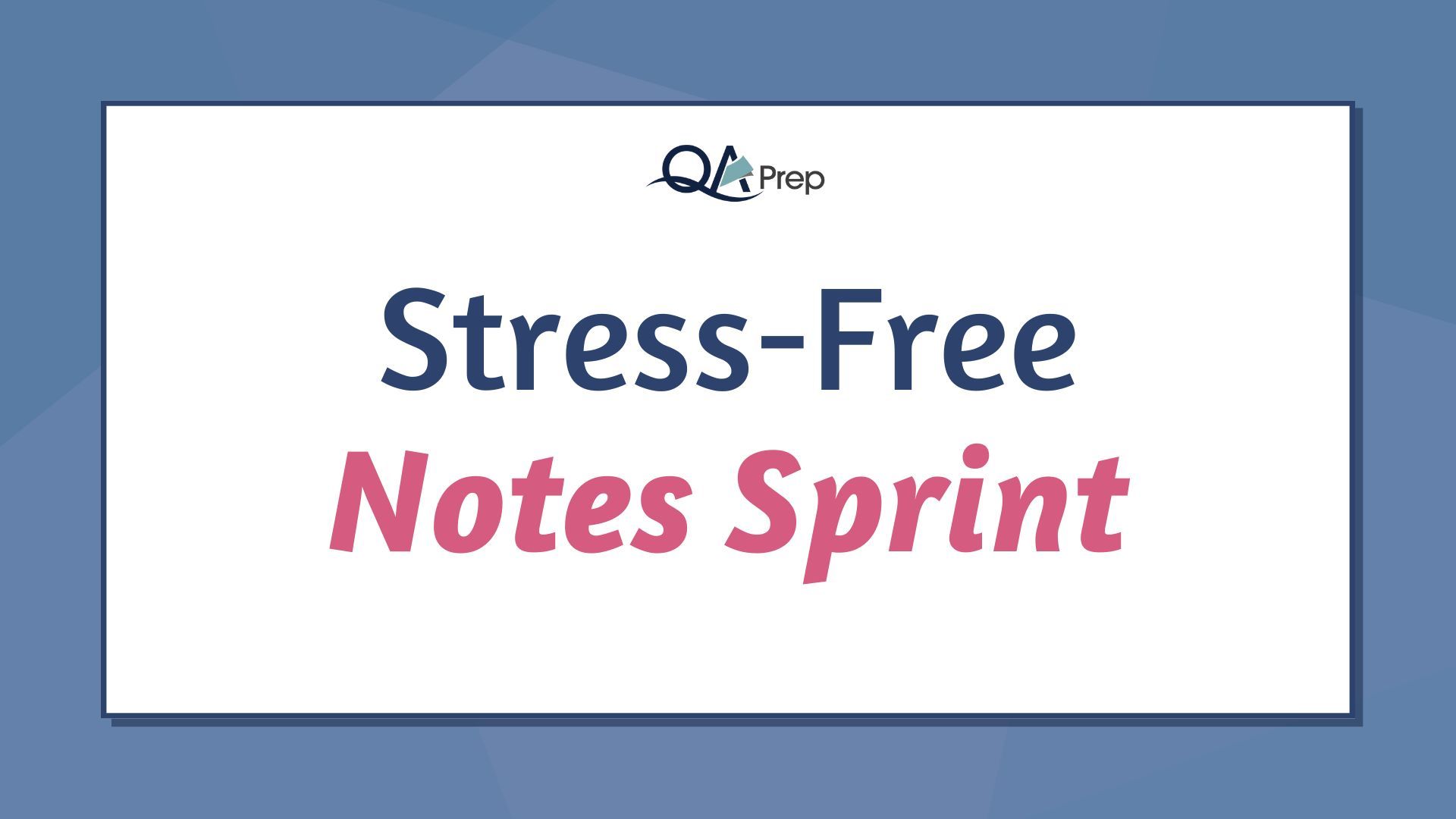Protecting Clients Through Better Progress Notes
Nov 10, 2025
How to Document Sensitive Topics in a Progress Notes
The world of psychotherapy often feels like uncharted territory. As mental health therapists, we are trained to navigate the deepest and most personal concerns of our clients. But in a political climate where issues like LGBTQ+ rights and abortion access are not just clinical but legal matters, the simple act of writing progress notes has become a high-stakes balancing act. How do we uphold our duty to document while fiercely protecting client privacy?
This very question was the focus of a recent episode of The Modern Therapist’s Survival Guide. Hosts Curt Widhalm and Katie Vernoy were joined by clinical documentation expert Dr. Maelisa McCaffrey of QA Prep. They explored how to ethically and effectively handle documenting sensitive topics. This recap offers a guide through their conversation, or listen to the full episode here.
The New Frontier of Client Documentation
The conversation began by acknowledging the palpable anxiety many therapists feel. With laws changing rapidly and varying from state to state, what was once standard practice now requires careful consideration.
"It’s not just a clinical issue anymore. It’s a legal one." - Curt Widhalm
Dr. McCaffrey, a self-proclaimed "not rule-loving" clinician who became an expert on documentation out of necessity, confirmed that these concerns are widespread. She's seen a significant increase in questions from therapists worried about how their notes could be used against a client.
Common fears and questions she receives include:
- How much detail in progress notes is too much—or too little?
- What specific phrases should I use or avoid in case notes?
- Should I go back and change documentation from last year, when the climate was different?
- How do I document a client's transgender status, immigration concerns, or a decision to have an abortion?
These are not fringe issues. They are central to the lives of many clients and, therefore, central to our work. The challenge is documenting these realities without creating a roadmap for potential legal harm.
Your Best Defense: Informed Consent as an Ongoing Process
While the pressures are new, Dr. McCaffrey’s core advice brought the focus back to a foundational principle: informed consent. She stressed that informed consent isn't a one-time form signed at intake; it’s an ongoing, dynamic conversation that evolves with the therapeutic relationship.
"Ultimately, all of these issues, we tend to get very hung up on our own beliefs, our own feelings about it, and honestly, that matters very little. What is the most important is informed consent." - Dr. Maelisa McCaffrey
When it comes to documenting sensitive topics in progress notes, this means talking to clients about the process. This doesn't have to be a scary, conspiracy-laden discussion. It can be as simple as:
- Stating the facts: "I want you to know that I take notes on our sessions to ensure I'm providing the best care."
- Opening a dialogue: "I'm thinking about how to best document our conversation today. Do you have any preferences or concerns about how I describe this?"
- Offering your standard practice: "When we discuss topics like abortion, I often use the term 'pregnancy loss' in my notes to focus on the emotional experience. How does that feel to you?"
Katie Vernoy raised an important point: this conversation could inadvertently increase client anxiety or cause them to self-censor. The key is to match the client's energy. If they express fear about their privacy, they will likely feel relieved to know you share their concern and are being thoughtful. If they don't seem worried, a brief, matter-of-fact statement may be all that’s needed. The goal is to empower clients, not burden them.
Practical Phrasing for Sensitive Topics in Progress Notes
So, what do you actually write? Dr. McCaffrey emphasized focusing on the underlying clinical experience rather than politically charged buzzwords. This isn't about being dishonest; it's about being clinically precise.
Here are some of the practical phrasing strategies discussed:
- For Abortion: Use a term like "pregnancy loss." This phrase accurately captures the potential for grief and complex emotions you are likely addressing in therapy, without using a word that could be flagged in a legal context. Always check in with the client about the language you use.
- For Gender Identity: Especially with adolescents, you can focus on themes of "identity issues," "questioning identity," or discussions around "sexuality." These are developmentally normal and clinically relevant topics that don't necessarily need a specific, potentially targeted label in every note.
- For Immigration Status: Focus on the associated stressors, such as "family conflict," "housing instability," "concerns about family member's safety," or struggles with "cultural identity." These phrases capture the client's lived experience and its impact on their mental health.
The guiding principle is to document what is clinically relevant. If a specific term or detail is essential for tracking progress, justifying medical necessity for insurance, or ensuring continuity of care, then its inclusion has a clear purpose.
What is Important for the Mental Health Record
Eric Strom, an attorney and counselor, offers a powerful alternative to the old adage, "If it's not written down, it didn't happen."
He suggests: "If it's in the record, think about why."
This simple question is a powerful filter. Before you write something down, ask yourself:
- Why am I including this detail?
- Does it serve a clear clinical purpose?
- Is it required for billing or by other regulations?
- Could I document the clinical progress without this specific piece of information?
This lens helps you move from automatic writing to intentional documentation. Dr. McCaffrey gave the example of a therapist who kept minimal progress notes and avoided diagnoses, believing it protected her clients. However, when one client needed to apply for disability, their file was useless. Thankfully, a psychiatrist’s detailed notes saved the day. It was an eye-opening moment that showed how well-intentioned "defensive" documentation can sometimes do a disservice. The key is finding the right balance for each client's unique situation.
Key Takeaways from the Conversation
- Informed Consent is Dynamic: Treat informed consent as an ongoing dialogue, especially when sensitive topics arise.
- Match the Client's Energy: Gauge your client's level of concern about privacy and adjust the depth of your conversation accordingly.
- Focus on the Process: Use language that describes the client's emotional and psychological experience rather than just buzzwords (e.g., "pregnancy loss" instead of "abortion").
- Use Details Purposefully: For every detail you include in a client's record, ask yourself, "Why does this need to be here?"
- Manage Your Own Anxiety: Regulate your own feelings about the political climate so you don't project them onto your clients.
Next Steps for Your Practice
Feeling overwhelmed? Here are a few concrete steps you can take this week.
- Review Your Informed Consent: Does your intake paperwork clearly state that you keep notes? Consider if you need to add a point about discussing documentation of sensitive information during the course of therapy.
- Practice Phrasing: Think of a recent session involving a sensitive topic. How would you document it using the "clinical themes" approach?
- Check Your "Why": Look at your last few progress notes. For each one, ask yourself why you included the details you did. Was it for clinical tracking, billing, fear, or habit?
- Listen to the Full Episode: Dive deeper into these strategies by listening to the complete conversation on The Modern Therapist's Survival Guide. You can find it and the show notes at mtsgpodcast.com.
Navigating clinical documentation requires a thoughtful blend of ethical integrity, clinical skill, and legal awareness. It's about protecting our clients while creating records that are accurate, purposeful, and effective. By staying informed and centering the client in the process, we can continue to provide a safe space for healing, no matter what happens outside the therapy room.

